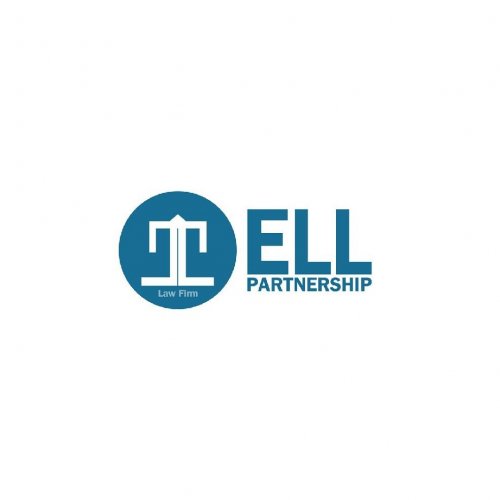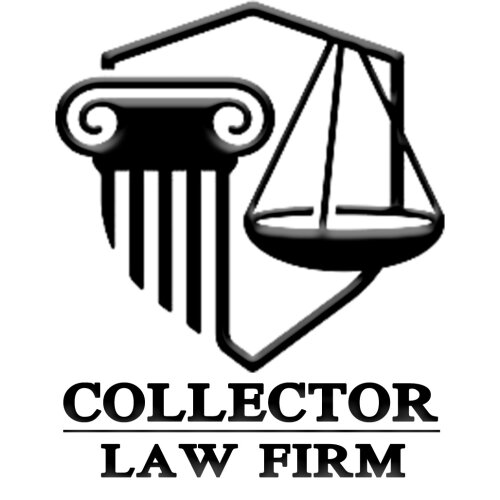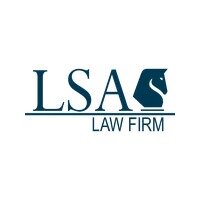Best Natural Resources Lawyers in Yerevan
Share your needs with us, get contacted by law firms.
Free. Takes 2 min.
List of the best lawyers in Yerevan, Armenia
About Natural Resources Law in Yerevan, Armenia
The natural resources sector in Armenia is rich and diverse, encompassing everything from mining and forestry to water resources and renewable energy. Yerevan, as the capital city, plays a central role in the management and regulation of these resources. The country's natural resources mainly include copper, molybdenum, zinc, gold, and silver which are major contributors to the national economy. The government actively seeks to manage these resources sustainably and responsibly, balancing environmental concerns with economic development.
Why You May Need a Lawyer
There are several situations where individuals or businesses might require legal assistance in the field of natural resources in Yerevan:
- Mining Activities: Legal guidance is essential for obtaining licenses, ensuring compliance with environmental regulations, and resolving disputes.
- Environmental Impact Assessments: Businesses might need legal advice on conducting and adhering to environmental impact assessments for their projects.
- Land Use and Ownership Issues: Navigating the complexities of land ownership, leasing, and zoning laws can be challenging without professional advice.
- Water Resource Management: Legal advice can be necessary for water usage rights, especially with regard to irrigation, industrial use, and utility contracts.
- Renewable Energy Projects: Initiating projects in solar, wind, or hydropower frequently requires navigating regulatory landscapes best managed with legal help.
Local Laws Overview
Armenia has a comprehensive legal framework governing natural resources, which includes laws pertinent to mining, environmental protection, and energy production. Key aspects include:
- Mining Code of Armenia: Regulates exploration, extraction, and land rehabilitation processes.
- Environmental Laws: Enforce regulations on pollution control, biodiversity protection, and sustainable use of natural resources.
- Water Code of Armenia: Governs the use and protection of water resources, essential for both agriculture and industry.
- Renewable Energy Legislation: Supports the development and utilization of renewable energy sources through various incentives and regulations.
- Forestry Laws: Manage the conservation and use of forest resources, including conservation efforts and sustainable logging practices.
Frequently Asked Questions
What is the process to obtain a mining license in Armenia?
The process involves several steps, including the submission of a geological exploration project, environmental impact assessments, and various governmental approvals.
Are there any incentives for renewable energy projects?
Yes, Armenia offers various incentives such as tax benefits, grants, and favorable tariffs for renewable energy projects to encourage sustainable energy use.
How does Armenia ensure the environmental compliance of mining operations?
Through strict environmental regulations and continuous monitoring by governmental bodies to enforce compliance and remediate any environmental impact.
Can foreigners own land for natural resource exploitation in Armenia?
Foreign ownership of land is generally restricted, but long-term leasing is an available option for foreigners to engage in resource exploitation.
What legal measures are in place to protect water resources in Armenia?
Armenia's Water Code regulates usage rights, establishes the framework for sustainable use, and includes protection measures against pollution.
How are industrial activities impacting biodiversity managed?
Through the Environmental Impact Assessment process, which is required before any industrial activity begins, and continuous monitoring of biodiversity.
What roles do local communities play in natural resource management?
Local communities are increasingly engaged in decision-making processes and benefit-sharing arrangements within natural resource projects.
What are the penalties for non-compliance with natural resource laws?
Penalties range from fines and sanctions to suspension or revocation of licenses, depending on the severity of the non-compliance.
Is there a governmental body overseeing the natural resource sector in Armenia?
Yes, several bodies such as the Ministry of Environment and the Ministry of Territorial Administration and Infrastructure are involved in oversight and regulation.
How does one file a complaint against a natural resource company in Armenia?
Complaints can be filed through governmental institutions like the Ministry of Environment or relevant local government offices.
Additional Resources
For those needing further assistance or information, the following resources may be useful:
- Ministry of Environment of Armenia: Offers guidelines on environmental regulations and compliance.
- Armenian Mining Agency: Provides information on mining laws, licensing procedures, and industry standards.
- Public Information Centers: Local centers that can provide help and resources on energy and environmental concerns.
- International Financial Institutions: Often provide reports and insights into best practices and laws regarding natural resource management.
Next Steps
If you need legal assistance in the field of natural resources, consider the following steps:
- Consult a Lawyer: Look for lawyers who specialize in natural resource laws or environmental law to guide you through the complexities of regulations and compliance.
- Gather Documentation: Prepare all necessary legal documents relevant to your issue, including contracts, permits, and communications with government bodies.
- Assess Your Needs: Clearly identify your legal needs and what outcomes you are seeking, whether it's a compliance review, contract negotiation, or litigation.
- Schedule a Consultation: Meet with your legal advisor to discuss your situation, options, and potential legal strategies.
- Follow Up: Stay in communication with your lawyer to keep your case or issue progressing efficiently and effectively.
Lawzana helps you find the best lawyers and law firms in Yerevan through a curated and pre-screened list of qualified legal professionals. Our platform offers rankings and detailed profiles of attorneys and law firms, allowing you to compare based on practice areas, including Natural Resources, experience, and client feedback.
Each profile includes a description of the firm's areas of practice, client reviews, team members and partners, year of establishment, spoken languages, office locations, contact information, social media presence, and any published articles or resources. Most firms on our platform speak English and are experienced in both local and international legal matters.
Get a quote from top-rated law firms in Yerevan, Armenia — quickly, securely, and without unnecessary hassle.
Disclaimer:
The information provided on this page is for general informational purposes only and does not constitute legal advice. While we strive to ensure the accuracy and relevance of the content, legal information may change over time, and interpretations of the law can vary. You should always consult with a qualified legal professional for advice specific to your situation.
We disclaim all liability for actions taken or not taken based on the content of this page. If you believe any information is incorrect or outdated, please contact us, and we will review and update it where appropriate.














